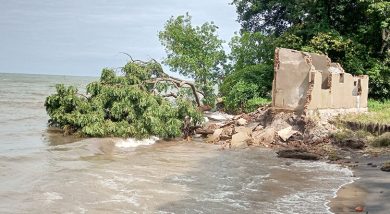Independent Police Complaints Commission talk resurfaces
Time for unchecked police brutality and abuse of power might be over for the Malawi Police Service following the new administration’s commitment to constitute the Independent Police Complaints Commission (IPPCC) as provided for in the Police Act of 2010.
In the absence of the commission, acts of police brutality that saw tortured suspects dying in police custody as some officers’ excesses went unbridled. This painted the police service as unreformed body operating in a democratic dispensation.

In an interview with Nation on Sunday, Minister of Homeland Security Richard Chimwendo Banda said consultations have started at ministry level and that they will continue during the next meeting of the House “because Parliament also has a role to play in the establishment of the commission”.
Banda added: “It is a priority because the law already provides for it. The government of Lazarus Chakwera, which has its foundation in the rule of law, will deliver on this one.”
According to Section 129 of the Police Act, the Independent Police Complaints Commission will be receiving and investigating complaints by the public against police officers and the MPS, to investigate death or injury as a result of police action and to investigate deaths or injuries which occur in police custody.
Early this year, Buleya Lule, a suspect in the murder of an albino boy in Dedza died in police custody at Area 3 in Lilongwe—a typical case that would need the IPCC.
In August last year, we revealed that over 70 people had died in the hands of police in Malawi, without anyone accounting for their deaths.
Ideally, in such circumstances an inquest was supposed to be done to establish cause of death. But no inquest was done leaving families of the deceased helpless, but with the commission in place, such concerns could be well handled.
Newly appointed Inspector General of Police George Kainja, who has promised to deliver a non-partisan and professional police, welcomed the commitment to establish the commission, which he described as “long overdue”.
“We need IPCC [Independent Police Complaints Commission]. We needed it on Friday. It is an institution that will help enhance oversight over the MPS and it will ease the work for the Professional Standard Unit of investigating fellow police officers,” he said.
The Centre for Human Rights Education, Advice and Assistance (Chreaa), a non-governmental organisation which is among many that have been pushing for the creation of the commission, said it is time for action, and not further promises.
In a telephone interview, Chreaa executive director Victor Mhango, said politicians no longer inspire confidence in the matter as there have been more promises without action.
“I deal with complaints against police brutality and misconduct almost every day. It will really be helpful to have the complaints commission in place as soon as it is practical,” he said.
Recently, police were entangled in a scandal where they allegedly raped women in Lilongwe’s Msundwe area as they hunted for suspects who had killed a fellow officer during demonstrations against the 2019 electoral fraud.
The Msundwe case, which has been duly investigated by the Malawi Human Rights Commission, would have been better dealt with by the IPCC.
Chimwendo-Banda, just like the Inspector General of Police, also promised that the new government, within a set time-frame to be announced soon, will handle all outstanding cases that include the gruesome murder of one of the directors at the Anti-Corruption Bureau (ACB) Issa Njauju in 2016, Robert Chasowa, the Polytechnic student activist killed in 2011 and Lule.
On Njauju, according to acting British High Commissioner David Beer, a UK-sponsored homicide expert already investigated and submitted a report to MPS.





